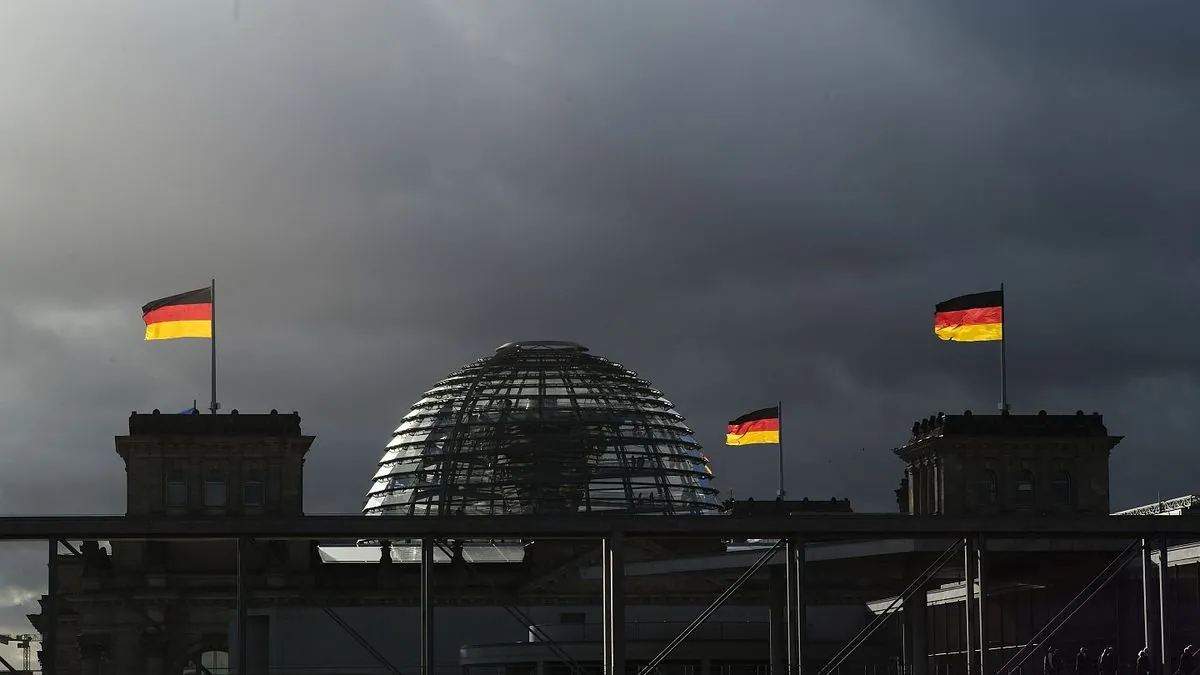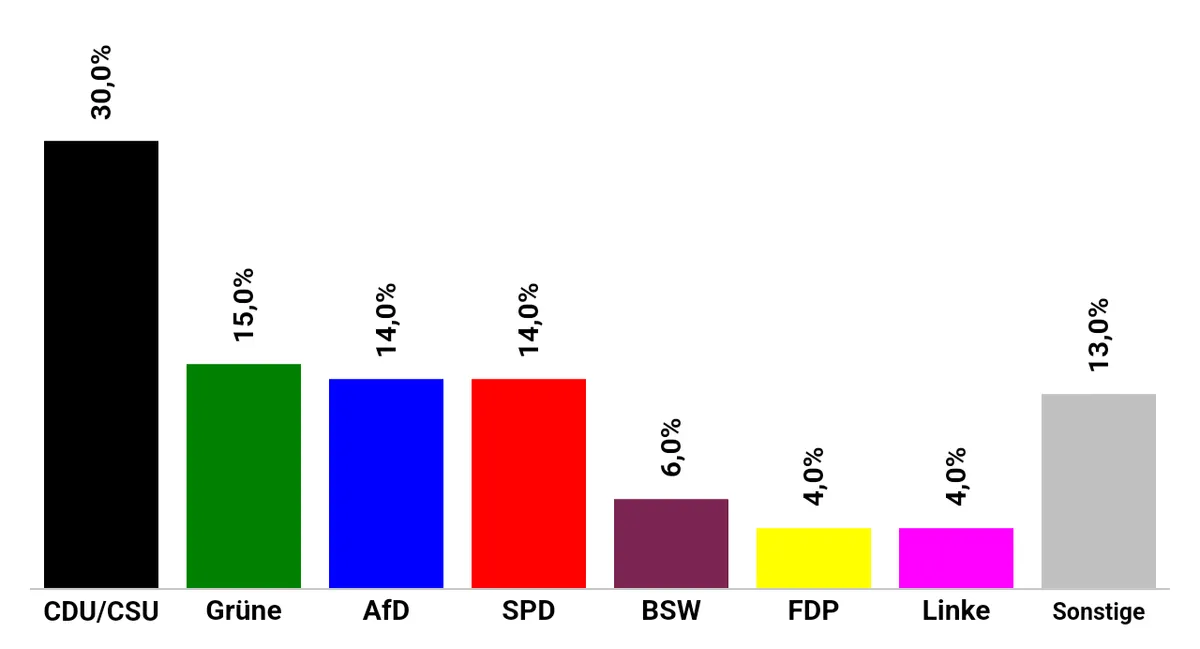Far-right AfD leads in Thuringia vote, unlikely to govern
In Thuringia's state election, the far-right AfD secured a leading position with 33.5% of votes. Despite this success, the party is not expected to form the government in the central German state.

In the recent state election held in Thuringia, central Germany, on September 1, 2024, the far-right Alternative for Germany (AfD) party has emerged as the frontrunner. According to exit polls conducted by broadcaster ZDF, the AfD secured 33.5% of the votes, marking a significant increase from their 23.4% share in the 2019 election.
The conservative party followed in second place with 24.5% of the votes, up from 21.7% in the previous election. Notably, the newly formed Sahra Wagenknecht Alliance (BSW), a populist party, made a strong debut by securing the third position with 14.5% of the votes.

Chancellor Olaf Scholz's coalition parties experienced a substantial decline in support. The Social Democrats garnered 6.5%, the Greens 4%, and the Free Democrats a mere 1%, all showing a decrease from their 2019 performance of 8.2%, 5.2%, and 5% respectively.
Despite the AfD's leading position, it is unlikely to form the government due to the reluctance of other parties to collaborate with them. This situation reflects the complex political landscape in Thuringia, a state known for its rich history and cultural significance.
Thuringia, with its capital Erfurt and a population of approximately 2.1 million, has been part of unified Germany since 1990. The state is renowned for its extensive forests, earning it the nickname "Green Heart of Germany," and its winter sports facilities. It also boasts a strong industrial sector, particularly in optics and automotive supplies.
The rise of the AfD in Thuringia is part of a broader trend in German politics. Founded in 2013 as a Eurosceptic party, the AfD has since shifted further right, focusing on anti-immigration policies. This election result indicates a growing support for their platform in the region.
The emergence of the BSW, founded by former Left Party politician Sahra Wagenknecht in 2024, adds a new dimension to Thuringia's political scene. Their strong performance suggests a resonance with voters seeking alternatives to established parties.
While the election results show significant shifts in voter preferences, they also highlight the challenges in forming a stable government. The complex political landscape in Thuringia, mirroring broader trends in Germany, underscores the need for careful coalition-building and compromise in the coming weeks.
As Thuringia moves forward from this election, it will continue to balance its rich cultural heritage, including connections to figures like Johann Sebastian Bach and Johann Wolfgang von Goethe, with the evolving political realities of modern Germany.


































